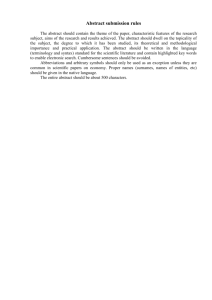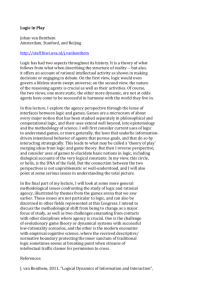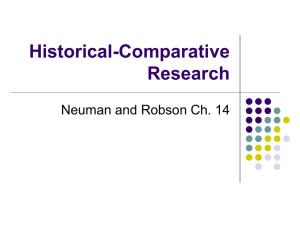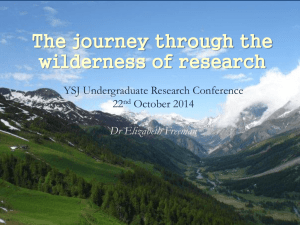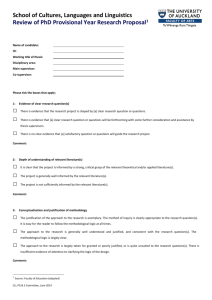Curriculum: The inclusion of artistic practice in the context of
advertisement
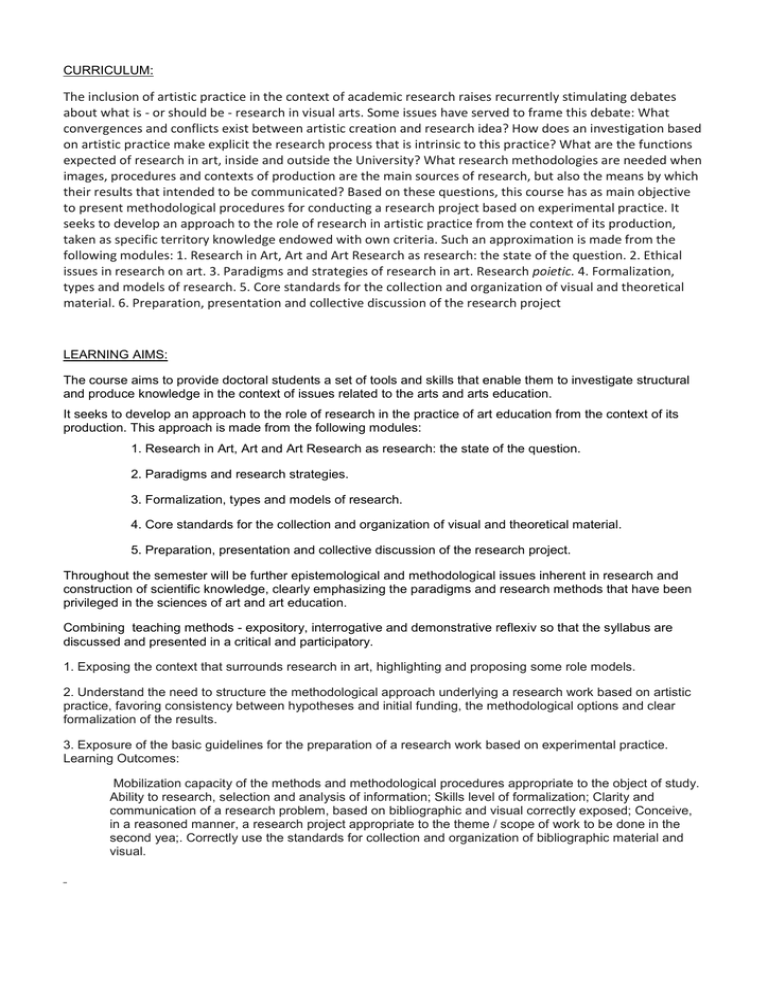
CURRICULUM: The inclusion of artistic practice in the context of academic research raises recurrently stimulating debates about what is - or should be - research in visual arts. Some issues have served to frame this debate: What convergences and conflicts exist between artistic creation and research idea? How does an investigation based on artistic practice make explicit the research process that is intrinsic to this practice? What are the functions expected of research in art, inside and outside the University? What research methodologies are needed when images, procedures and contexts of production are the main sources of research, but also the means by which their results that intended to be communicated? Based on these questions, this course has as main objective to present methodological procedures for conducting a research project based on experimental practice. It seeks to develop an approach to the role of research in artistic practice from the context of its production, taken as specific territory knowledge endowed with own criteria. Such an approximation is made from the following modules: 1. Research in Art, Art and Art Research as research: the state of the question. 2. Ethical issues in research on art. 3. Paradigms and strategies of research in art. Research poietic. 4. Formalization, types and models of research. 5. Core standards for the collection and organization of visual and theoretical material. 6. Preparation, presentation and collective discussion of the research project LEARNING AIMS: The course aims to provide doctoral students a set of tools and skills that enable them to investigate structural and produce knowledge in the context of issues related to the arts and arts education. It seeks to develop an approach to the role of research in the practice of art education from the context of its production. This approach is made from the following modules: 1. Research in Art, Art and Art Research as research: the state of the question. 2. Paradigms and research strategies. 3. Formalization, types and models of research. 4. Core standards for the collection and organization of visual and theoretical material. 5. Preparation, presentation and collective discussion of the research project. Throughout the semester will be further epistemological and methodological issues inherent in research and construction of scientific knowledge, clearly emphasizing the paradigms and research methods that have been privileged in the sciences of art and art education. Combining teaching methods - expository, interrogative and demonstrative reflexiv so that the syllabus are discussed and presented in a critical and participatory. 1. Exposing the context that surrounds research in art, highlighting and proposing some role models. 2. Understand the need to structure the methodological approach underlying a research work based on artistic practice, favoring consistency between hypotheses and initial funding, the methodological options and clear formalization of the results. 3. Exposure of the basic guidelines for the preparation of a research work based on experimental practice. Learning Outcomes: Mobilization capacity of the methods and methodological procedures appropriate to the object of study. Ability to research, selection and analysis of information; Skills level of formalization; Clarity and communication of a research problem, based on bibliographic and visual correctly exposed; Conceive, in a reasoned manner, a research project appropriate to the theme / scope of work to be done in the second yea;. Correctly use the standards for collection and organization of bibliographic material and visual. RESULTS OF LEARNING: It is intended that the student is able to organize and structure a critical and consistent project of research. WORKING CLASS: On classroom. Considering the specific methodological procedures for research in arts, the program is approached from: (1) lectures with use of analysis of concrete cases of research models, where you want a note participatory to update the particular interests of each student in the content presented, (2) an experimental development, based on a theme, make sure that rehearse and possibilities of articulating a specific practice and methodological requirements of an academic research. VALIDATION: With no final exam. The assessment is continuous and results from work plan. BIBLIOGRAPHY: CRESWELL, John W. (1994). Research Design: qualitative & quantitative approaches. Thousand Oaks: Sage Publications. DOLOUGHAN, F. J. (2002). The Language of Reflective Practice in Art and Design. Design Issues, Vol. 18, nº2, 57-64. http://www.mitpressjournals.org/ ECO, Umberto. (1988). Como se faz uma tese, Tradução Ana Falcão Bastos e Luis Leitão. 4ª Edição. Lisboa: Presença. ELKINS, James (ed.) (2009). Artists with PhDs: On the New Doctoral Degree in Studio Art. Washington: New Academia Publishing. FRAYLING, C. (1993). Research in Art and Design. Royal College of Art Research (vol.1) Nº1. GRAY, C., MAILIS, Jullian. (2004). Visualizing Research. A guide to the Research Process in Art and Design. Ashgate Publishing Limited. GUBA, E., LINCOLN, Yvonna S. (1987). Effective Evaluation. Improving The Usefulness of Evaluation Results Through Responsive an Naturalistic Approaches. São Francisco, Londres: Jossey-Bass Publishers. KNOWLES, J. Gary; COLE, Ardra (eds) (2007). Handbook of the Arts in Qualitative Research: Perspectives, Methodologies, Examples, and Issues. New York: The Guilford Press. BOIS, Yves-Alain. (1993). “Introduction: Resisting Blackmail”. Painting as Model. 4ª ed. Cambridge: MIT Press, pp. xi-xxx. BOURDIEU, Pierre (1990). The Logic of Practice. Stanford: Stanford University Press. COUTINHO, C. (2007). Métodos de Investigação em Educação III – Transformando os dados em informação, Cursos de Mestrado em Educação 2007/2008 Instituto de Educação e Psicologia. Braga: Universidade do Minho. DIDI-HUBERMAN, Georges (2004). Confronting Images: Questioning the Ends of a Certain History of Art. Philadelphia: Pennsylvania University Press. DIEBNER, Hans H (2006). Performative Science and Beyond: Involving the Process in Research. New York: ZKM. HALPRIN, Lawrence (1969). The RSVP Cycles: creative processes in the human environment. New York: George Braziller. HALPRIN, Lawrence; BURNS, Jim (1974). Taking part: a workshop approach to collective creativity. Cambridge: The MIT Press. HOLLY, Michael Ann (ed.) (2009). What Is Research in the Visual Arts?: Obsession, Archive, Encounter. Williamstown, Massachusetts: Clark Art Institute. LEAVY, Patricia (2008). Method Meets Art: Arts-Based Research Practice. New York: The Guilford Press. MOTTRAN, J. (2009). Researching Research in Art and Design. In J. ELKINS (Ed.), Artists with PhDs- on the new Doctoral Degree in Studio Art. Washington, DC: New Academia Publishing. PINK, Sarah (2007). Doing Visual Ethnography: Images, Media and Representation in Research. London: Sage Publications. PROSSER, Jon (ed.) (1998). Image-based Research: A Sourcebook for Qualitative Researchers. New York: Routledge. ROSE, Gillian (2007). Visual Methodologies: An Introduction to the Interpretation of Visual Materials. London: Sage Publications. SCHÖN, D. (1987). Educating the Reflective Practionier- Toward a New design for Teaching and Learning in the Professions. San Francisco: Jossey- Bass. A Wiley Imprint. SINGERMAN, Howard (1999). Art Subjects: Making Artists in the American University. Los Angeles: University of California Press. SIMÕES, S. (2011). Investigar em, através e para o Desenho. Comunicação apresentada no Congresso do 23º Encontro da APECV. Bragança, 13, 14 e 15 de Maio de 2011. SULLIVAN, Graeme (2005). Art Practice as Research. London: Sage Publications. VLADEL, Ricardo Marín, PEREDO, J.F.L. Gonzalvez, MARIN, J.L. Tolosa. (1998). La Investigación en Bellas Artes – Tres aproximaciones a un debate, s.l., Grupo Editorial Universitario.

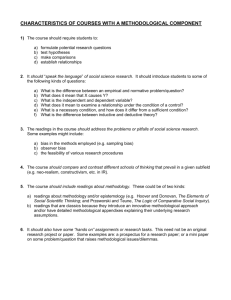
![Introduction [max 1 pg]](http://s3.studylib.net/store/data/006997862_1-296d918cc45a340197a9fc289a260d45-300x300.png)
